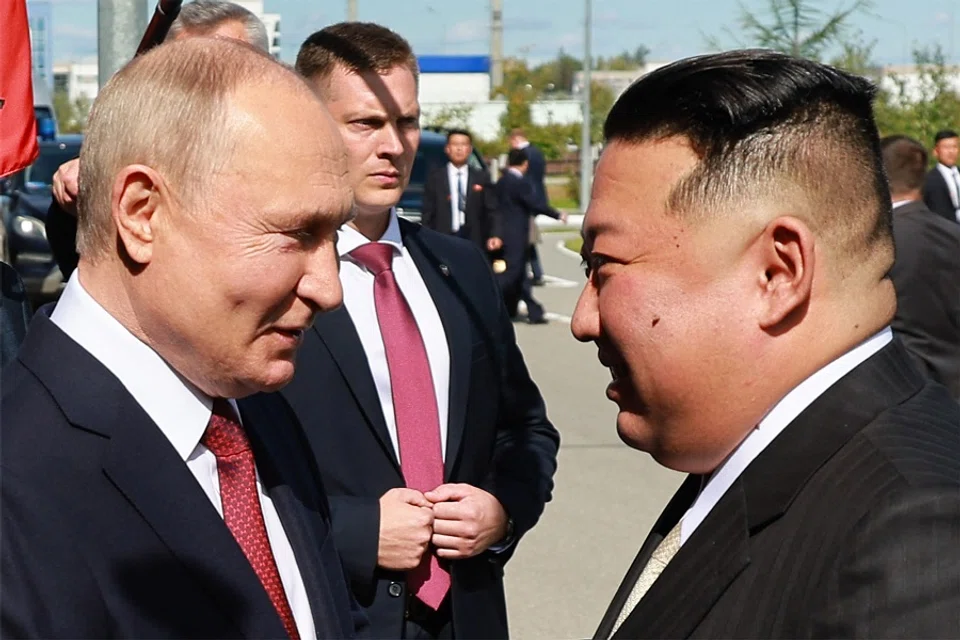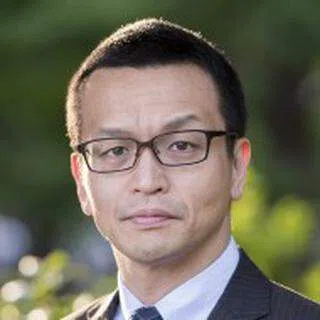Why Kim Jong-un's first trip after the pandemic was not to China, but Russia
The solidarity between North Korea and Russia based on an "anti-imperialist" or anti-American mindset can be said to be a strategic and simple construct: "An enemy's friend is an enemy."

On 13 September, a North Korea-Russia summit meeting between Chairman of the State Affairs Commission Kim Jong-un and President Vladimir Putin was held at Vostochny Cosmodrome in Russia's Far East. Accompanying Kim Jong-un on his trip to Russia was a large entourage that included the foreign minister, the vice-chairman of the Central Military Commission of the Workers' Party of Korea (WPK), the director of the Military Department of the Central Committee of the WPK, the minister of defence, the navy commander, the air force commander and other military officials.
North Korea is overwhelmed in both military and economic power by the US and South Korea, and it has become necessary to cooperate with both China and Russia.
'New Cold War' on the Korean peninsula?
It was clear to anyone that North Korea's main objective was to deepen military cooperation with Russia. This is Kim Jong-un's first overseas trip in four years and five months, and this means that North Korea, which has had the world's strictest epidemic prevention system, has finally transitioned to a state living with coronavirus. It is interesting that Kim Jong-un's first stop after the coronavirus outbreak was not its ally China, but Russia.
Kim Jong-un has been saying the words "new Cold War" for exactly two years. Originally, it was an expression criticising cooperation between Japan, the US, and South Korea, but it is becoming a reality regarding the situation on the Korean peninsula. North Korea is overwhelmed in both military and economic power by the US and South Korea, and it has become necessary to cooperate with both China and Russia.

However, the basis of North Korea's diplomacy is an independent policy that does not depend on any other country. During the Cold War, North Korea maintained an appropriate sense of distance from both Moscow and Beijing, while forming alliances with them. That is why North Korea has been able to maintain its unique national system, neither collapsing like the Soviet Union nor being swept away by the wave of China's reform and opening up.
The Sino-North Korean alliance includes an "automatic military intervention clause", under which the ally provides military support in the event of an attack from another country. But it is doubtful that it will actually work. Even if North Korea were to be attacked by the US, there is a possibility that China would not provide military support, interpreting and reasoning that the attack was caused by North Korea itself. Precisely because it cannot rely on its allies, North Korea has insisted on developing nuclear weapons and missiles on its own.
... the situation in Moscow is now very different. Russia, which had become internationally isolated as a result of its invasion of Ukraine, was forced to deal with North Korea, which it had previously looked down upon.
'An enemy's friend is an enemy'
North Korea has repeatedly failed to launch military reconnaissance satellites in May and August of this year. The failure of this national project by order of Kim Jong-un is a huge blow, and proof of this is that the country has not even disclosed to its own people the fact that it attempted a second launch. The Kim Jong-un administration has a desire to receive funds for weapons development, cutting-edge technology, and cooperation in the field of "space development" from Russia in return for providing shells and workers that are in short supply during the Ukraine war.

Kim Jong-un was treated poorly by Putin at the previous North Korea-Russia summit in 2019 and was forced to return home without achieving any significant results. However, the situation in Moscow is now very different. Russia, which had become internationally isolated as a result of its invasion of Ukraine, was forced to deal with North Korea, which it had previously looked down upon. This time, Putin himself treated Kim Jong-un warmly, even guiding him to the space base. According to North Korean media, the reception "proceeded in a familiar and amicable atmosphere overflowing with friendly feelings".
Kim Jong-un has used the term "comrade" only for the leaders of socialist countries such as China, Vietnam, Laos and Cuba. However, on the occasion of the 70th Anniversary of the Armistice in July of this year, he used the word "comrade" for Putin for the first time. Moreover, Kim Jong-un gave Russia's Defence Minister Sergei Shoigu, who visited North Korea on the 70th Anniversary, the honour of being the first foreigner to be invited to his office.
It is difficult for the three countries of North Korea, Russia and China to unite like Japan, the US and South Korea, which is why Kim Jong-un chose Russia as his first foreign destination in a long time.
Currently, North Korean media is frequently using the expression that they are in agreement with Russia as "anti-imperialists". The solidarity between North Korea and Russia based on an "anti-imperialist" or anti-American mindset can be said to be a strategic and simple construct: "An enemy's friend is an enemy."
On the other hand, the expression "anti-imperialist" has not appeared between North Korea and China. The Xi Jinping administration may not be able to compromise on its own direct national interests, such as the Taiwan issue, but it wants to avoid unnecessary confrontation with the US over the Korean peninsula issue. It is difficult for the three countries of North Korea, Russia and China to unite like Japan, the US and South Korea, which is why Kim Jong-un chose Russia as his first foreign destination in a long time.
Moreover, Beijing absolutely does not allow North Korea to possess nuclear weapons. This is because there are concerns about the "nuclear domino" effect, which means that if North Korea acquires nuclear weapons, South Korea, Japan and even Taiwan may aim to acquire nuclear weapons, as well as concerns about radioactive contamination from nuclear tests. However, Putin has expressed opposition to the UN Security Council's sanctions against North Korea, and for Pyongyang, that alone was worth the effort to curry favour with Moscow.





![[Photos] Fact versus fiction: The portrayal of WWII anti-Japanese martyrs in Taiwan](https://cassette.sphdigital.com.sg/image/thinkchina/3494f8bd481870f7c65b881fd21a3fd733f573f23232376e39c532a2c7593cbc)